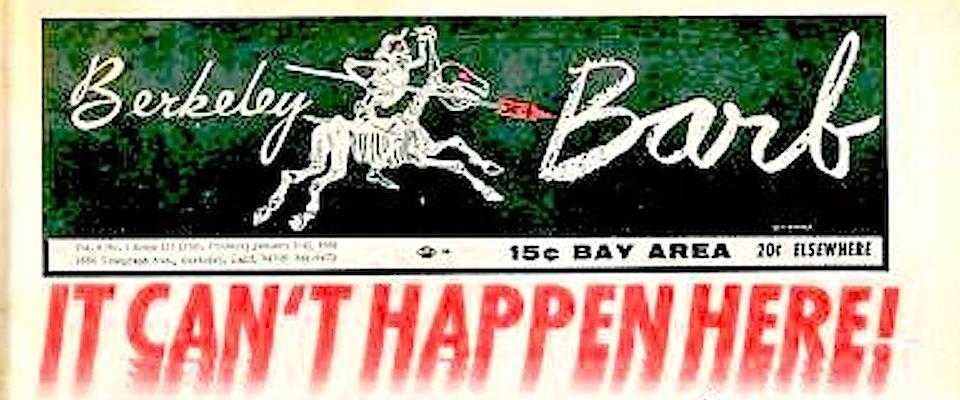Increasingly, police are looking at the world’s oldest profession as anything but a profession. Rather, they claim, it’s simple human trafficking, the sexual enthrallment of women and girls by heinous pimps for exploitation by amoral customers. Consequently, prostitutes increasingly are considered victims, and the emphasis is on outreach more than punishment. Pimps and johns, on the other hand, are targets for rigorous prosecution.
But pimps can be hard to convict, or even arrest. So to stop the sex trade—at least as it’s practiced on the streets—cops increasingly are turning to “john shaming:” publicizing the arrest of men arrested in prostitution sting operations. Richmond police recently kicked things up a notch by posting photos of suspected johns on the department’s Facebook site. That raised a variety of civil liberty concerns.
First, the men had been arrested, but not convicted; their punishment therefore might be construed as premature. Second, punishment that consists of social media postings is eternal punishment; it lives on the Internet potentially forever. Could that be considered cruel and unusual, or at least excessive? Some legal pundits certainly think so.
“This violates the bedrock principle that punishment should not begin until you are convicted,” says Jonathan Simon, the Adrian A. Kragen professor at Berkeley Law and the director of the school’s Center for the Study of Law and Society. “It’s the police saying, ‘We’re going to punish you upfront.’”
“In substance, that’s what’s going on here—stripping people who are not even convicted of their human dignity.”
Further, says Simon, “This isn’t just a few days in jail. It’s distinctly degrading treatment, public exposure that puts people at risk of long-term internal trauma.” And that, he continues, makes the posting of john photos on social media an 8th Amendment issue.
“Really, it’s the kind of thing that the 8th Amendment (the prohibition of cruel and unusual punishment) was designed to prevent,” says Simon. “That’s at heart of Trop v. Dulles (where the U.S. Supreme Court determined that it is unconstitutional to revoke U.S. citizenship as a punishment). In that case, Chief Justice Earl Warren observed that the real purpose of the 8th Amendment was to preserve human dignity. That was reaffirmed in Brown v. Prada (where SCOTUS determined that prison population limits were necessary to protect the 8th Amendment rights of convicts). In substance, that’s what’s going on here—stripping people who are not even convicted of their human dignity.”
Simon also thinks john pix posting may violate the 14th Amendment, which decrees in part that no state may deprive any person of life, liberty or property without due process of law, or deny anyone equal protection under the law.
“You have the police promoting an arrest photo not for the record, but specifically for the purpose of deterrence,” says Simon. “It’s deeply troubling.”
Berkeley Law assistant professor Andrea Roth says john shaming may be a Hail Mary pass by law enforcement due to past difficulties in scotching the street sex trade.
“It’s understandable, in that other approaches may not have been very effective in deterring prostitution,” says Roth. “Or maybe the johns are the low-hanging fruit—the police really want to go after the pimps, but they’re hard to catch and convict. But the big issue here is that the photos are posted before conviction, and that raises constitutional questions. Perhaps it’s time to put more effort into punishments that we know are constitutional, such as community service.”
Too, Roth worries about the ancillary effects of shaming.
“Public humiliation affects a lot of people besides the johns,” Roth says. “People say, ‘I saw your dad or husband on Facebook,’ and that can be devastating. Your career can be affected—maybe permanently, given that once something goes up on the Internet, it’s there forever. It can disrupt entire families, and it can destroy any chance [for a john’s] reintegration into society.”
Finally, Roth sees an uneven application of the law.
“Our emphasis is on getting them off the streets and into rehabilitation. It’s the same approach we take with the homeless and addict populations.”
“Both prostitution and the solicitation of prostitution are illegal under the same penal code section,” she says, “but only johns get their pictures posted. Obviously, there’s a general feeling in society that the johns are more blameworthy. But there has always been an uncomfortable and shifting intersection between prostitution and the law, and posting only the photos of johns on social media underscores a certain hypocrisy in the enforcement approach.”
Bu Richmond Police Department Captain Mark Gagan says there’s a very good reason for not posting photos of prostitutes: Officers do not necessarily consider them criminals. He observes that many prostitutes are forced into the trade by “despicable” pimps, and that a significant number of them—at least in Richmond—are minors. In short, they deserve help more than criminal records or public disgrace.
“We view these women and girls sympathetically,” says Gagan. “Our emphasis is on getting them off the streets and into rehabilitation. It’s the same approach we take with the homeless and addict populations.”
In the prostitution triad—pimps, prostitutes and johns—pimps are the prime target, Gagan continues.
“When we’re able to get convictions, they represent the highest level of justice,” he says. “They’re committing felony crimes. But we also feel it’s appropriate to go after the johns, though their crimes are usually misdemeanors. It’s not just the criminal sanction—public health is also an issue.”
As far as the constitutionality and ethics of posting the photos on social media go, Gagan is comfortable with the department’s policy.
“It should be remembered that booking photos are part of the public record,” he says. “It’s not at all uncommon for them to be disseminated, and not just in this context.”
Moreover, Facebook isn’t the only approach the department employs in discouraging solicitation.
“We also look for cars that are obviously cruising the 23rd Street corridor, where much of the trade takes place,” he says. “If we see a car with a driver who is obviously looking for or interacting with prostitutes, we take photographs of the license plates, and then send a registered letter to the car’s owner, noting his vehicle was seen circling an area where prostitution activity is high. If that letter is intercepted by a spouse and he has to do some explaining—well, that’s another disincentive for participating in the sex trade.”
Civil liberties concerns aside, one thing is clear: The Richmond program works.
“The 23rd Street corridor has been a regional prostitution center for years,” Gagan says. “We had johns coming from Berkeley, Marin and San Francisco, and girls coming from as far away as Clear Lake and Santa Rosa. It’s been a huge problem for the community, and especially for the business owners in the corridor. But our multiple intervention approach has been very successful in stemming the trade.”
And how would Gagan characterize the public response to the policy?
“It’s mixed,” he says. “People who feel [the Facebook postings] circumvent judicial review are concerned, and I understand that. But people who are affected by what’s going on—the people in the community—have been highly supportive.”
For the foreseeable future, at least, those displeased, irritated and frightened faces of arrested Richmond johns will continue to appear on Facebook. Ultimately, however, some judicial consideration of the policy may be in order. Simon observes that john cases are small cases, so it’s unlikely any given arrestee would have the stomach or capital to see his case proceed through full appellate review.
“Only a civil liberties or human rights group would have the resources to file a petition,” says Simon. “But Richmond would be a good case to test these kinds of policies. It might persuade police and city managers to look at alternatives.”




















